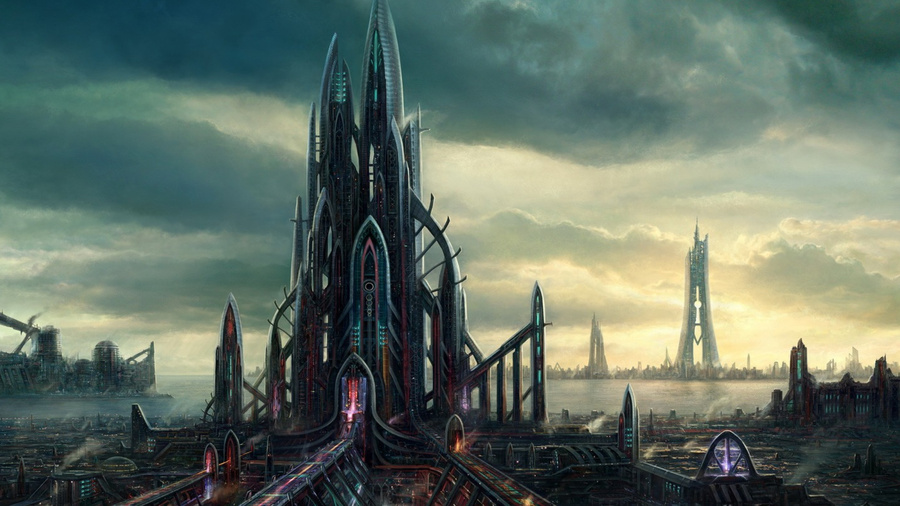Strange Horizons is a fabulous online speculative fiction magazine. I’ve been going there for ages, hogging on the freebies, including fiction, poetry, reviews of new books and articles on fantasy, horror, science fiction and its various sub-genres. While exploring the site, I found this useful list of things that the folks at Strange Horizons have seen too many times in their submissions. Typical plots, story tropes, characters, storylines that they DON’T want to see. I read the whole list and was surprised to find how close I’d come to a few of these typical, boring, done-to-death things, myself. (Red below are my comments.) Listing down a few here which I found particularly hilarious. For more, please head to this page, where they keep adding more tropes.
The following list is an attempt at classifying the kinds of non-horror plots and themes that we’ve received too frequently. Here’s the list:
- Creative person is having trouble creating.
- Writer has writer’s block.
- Painter can’t seem to paint anything good.
- Sculptor can’t seem to sculpt anything good.
- Creative person’s work is reviled by critics who don’t understand how brilliant it is.
- Creative person meets a muse (either one of the nine classical Muses or a more individual muse) and interacts with them, usually by keeping them captive.
- Visitor to alien planet ignores information about local rules, inadvertantly violates them, is punished.
- New diplomat arrives on alien planet, ignores anthropologist’s attempts to explain local rules, is punished.
- Weird things happen, but it turns out they’re not real.
- In the end, it turns out it was all a dream.
- In the end, it turns out it was all in virtual reality.
- In the end, it turns out the protagonist is insane.
- In the end, it turns out the protagonist is writing a novel and the events we’ve seen are part of the novel.
- Technology and/or modern life turn out to be soulless. (Haven’t we all done this one?)
- Office life turns out to be soul-deadening, literally or metaphorically.
- All technology is shown to be soulless; in contrast, anything “natural” is by definition good. For example, living in a weather-controlled environment is bad, because it’s artificial, while dying of pneumonia is good, because it’s natural.
- The future is utopian and is considered by some or many to be perfect, but perfection turns out to be boring and stagnant and soul-deadening; it turns out that only through imperfection, pain, misery, and nature can life actually be good.
- In the future, all learning is soulless and electronic, until kid is exposed to ancient wisdom in the form of a book.
- In the future, everything is soulless and electronic, until protagonist (usually a kid) is exposed to ancient wisdom in the form of a wise old person who’s lived a non-electronic life.
- Protagonist is a bad person. [We don’t object to this in a story; we merely object to it being the main point of the plot.]
- Bad person is told they’ll get the reward that they “deserve,” which ends up being something bad.
- Terrorists (especially Osama bin Laden) discover that horrible things happen to them in the afterlife (or otherwise get their comeuppance).
- Protagonist is portrayed as really awful, but that portrayal is merely a setup for the ending, in which they see the error of their ways and are redeemed. (But reading about the awfulness is so awful that we never get to the end to see the redemption.)
- A “surprise” twist ending occurs. [Note that we do like endings that we didn’t expect, as long as they derive naturally from character action. But note, too, that we’ve seen a lot of twist endings, and we find most of them to be pretty predictable, even the ones not on this list.]
- The characters’ actions are described in a way meant to fool the reader into thinking they’re humans, but in the end it turns out they’re not humans, as would have been obvious to anyone looking at them.
- Creatures are described as “vermin” or “pests” or “monsters,” but in the end it turns out they’re humans.
- The author conceals some essential piece of information from the reader that would be obvious if the reader were present at the scene, and then suddenly reveals that information at the end of the story. [This can be done well, but rarely is.]
- Person is floating in a formless void; in the end, they’re born.
- Person uses time travel to achieve some particular result, but in the end something unexpected happens that thwarts their plan.
- The main point of the story is for the author to metaphorically tell the reader, “Ha, ha, I tricked you! You thought one thing was going on, but it was really something else! You sure are dumb!”
- A mysteriously-named Event is about to happen (“Today was the day Jimmy would have to report for The Procedure”), but the nature of the Event isn’t revealed until the end of the story, when it turns out to involve death or other unpleasantness. [Several classic sf stories use this approach, which is one reason we’re tired of seeing it. Another reason is that we can usually guess the twist well ahead of time, which makes the mysteriousness annoying.]
- In the future, an official government permit is required in order to do some particular ordinary thing, but the specific thing a permit is required for isn’t (usually) revealed until the end of the story.
- Characters speculate (usually jokingly): “What if X were true of the universe?” (For example: “What if the universe is a simulation?”) At the end, something happens that implies that X is true.
- Characters in the story (usually in the far future and/or on an alien planet) use phrases that are phonetic respellings or variations of modern English words or phrases, such as “Hyoo Manz” or “Pleja Legions,” which the reader isn’t intended to notice; in the end, a surprise twist reveals that there’s a connection to 20th/21st-century English speakers.
- Scientist uses himself or herself as test subject.
- White protagonist is given wise and mystical advice by Holy Simple Native Folk. (This one made me laugh my head off. Avatar anyone?)
- An alien or an AI/robot/android observes and comments on the peculiar habits of humans, for allegedly comic effect. (Hitchhikers did have a few of these, to wonderful entertainment.)
- The alien or AI is fluent in English and completely familiar with various English idioms, but is completely unfamiliar with human biology and/or with such concepts as sex or violence and/or with certain specific extremely common English words (such as “cat”).
- The alien or AI takes everything literally.
- Instead of an alien or AI, it’s people in the future commenting on the ridiculous things (usually including internal combustion engines) that people used to use in the unenlightened past.
- Person A tells a story to person B (or to a room full of people) about person C. (This is so Hercule Poirot in SF!)
- In the end, it turns out that person B is really person C (or from the same organization).
- In the end, it turns out that person A is really person C (or has the same goals).
- In the end, there’s some other ironic but predictable twist that would cast the whole story in a different light if the reader hadn’t guessed the ending early on.
- It’s immediately obvious to the reader that a mysterious character is from the future, but the other characters (usually including the protagonist) can’t figure it out.
- Someone takes revenge for the wrongs done to them. (Ahem. This was the original Anantya plot, before it became Cult of Chaos. Glad I got rid of it.)
- Protagonist is put through heavy-handed humiliation after humiliation, and takes it meekly, until the end when he or she murders someone.
- Author showcases their premise of what the afterlife is like; there’s little or no story, other than demonstrating that premise. (This actually is an interesting trope for me. I would love to see Yamraj running it as a business. But again, done quite a lot of times.)
- Hell and Heaven are run like businesses.
- The afterlife is really monotonous and dull.
- The afterlife is a bureaucracy.
- The afterlife is nothingness.
- The afterlife reunites you with your loved ones.
- Protagonist agrees to go along with a plan or action despite not having enough information about it, and despite their worries that the thing will be bad. Then the thing turns out to be bad after all. (Most movies/books of single, white, urban hero. Always wondered why doesn’t he ask the questions?)
- In a comedic/satirical story, vampires and/or other supernatural creatures come out publicly and demand (and/or get) the vote and other rights, but people are prejudiced against them. (Sigh. Vampires, in the whole lot, should be banned for a few decades.)
- There’s a machine that cryptically predicts the manner of a person’s death by printing it on a slip of paper; the machine is never wrong, but often it’s right in surprising or ironic ways. [There’s nothing wrong with theMachine of Death anthologies, but we’ve seen a large number of MoD rejects, and we’re extremely unlikely to buy one.] hahahaha!
- Story is set in a world in which some common modern Western power structure is inverted, and we’re meant to sympathize with the people who are oppressed in the world of the story. [Such stories usually end up reinforcing the real-world dominant paradigm; and regardless, they rarely do anything we haven’t seen many times before.] This one is an interesting tool, and I wouldn’t say not to use it. Especially 1. I want to try it in a story someday.
- Women have more power than men, and it’s very sad how oppressed the men are.
- Everyone in the society is gay or lesbian, and straight people are considered perverts.
- White people are oppressed by oppressive people with other skin colors.
- Kids with special abilities are kidnapped by the government and imprisoned and tested in a lab.
- The author attempts to lead the reader to think a character is going to die, but instead the character is uploaded into VR or undergoes some other transformative but non-dying process. (Learn from GRR Martin people!)
- Someone dies and then wanders around as a ghost.
- They meet other ghosts who’ve been around longer and who show them the ropes, and/or help them come to terms with being dead, and/or explain that nobody knows what happens after ghosts move on to the next stage of the afterlife.
- They’re initially stuck in the place where they died or the place where their body is. In some cases, they eventually figure out how to roam the world.


